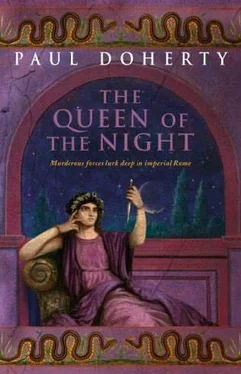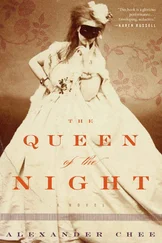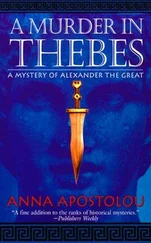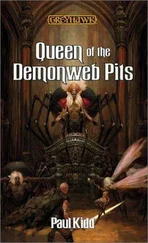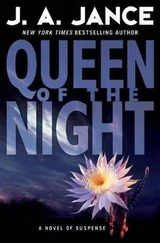Paul Doherty - Queen of the Night
Здесь есть возможность читать онлайн «Paul Doherty - Queen of the Night» весь текст электронной книги совершенно бесплатно (целиком полную версию без сокращений). В некоторых случаях можно слушать аудио, скачать через торрент в формате fb2 и присутствует краткое содержание. Жанр: Классический детектив, на английском языке. Описание произведения, (предисловие) а так же отзывы посетителей доступны на портале библиотеки ЛибКат.
- Название:Queen of the Night
- Автор:
- Жанр:
- Год:неизвестен
- ISBN:нет данных
- Рейтинг книги:5 / 5. Голосов: 1
-
Избранное:Добавить в избранное
- Отзывы:
-
Ваша оценка:
- 100
- 1
- 2
- 3
- 4
- 5
Queen of the Night: краткое содержание, описание и аннотация
Предлагаем к чтению аннотацию, описание, краткое содержание или предисловие (зависит от того, что написал сам автор книги «Queen of the Night»). Если вы не нашли необходимую информацию о книге — напишите в комментариях, мы постараемся отыскать её.
Queen of the Night — читать онлайн бесплатно полную книгу (весь текст) целиком
Ниже представлен текст книги, разбитый по страницам. Система сохранения места последней прочитанной страницы, позволяет с удобством читать онлайн бесплатно книгу «Queen of the Night», без необходимости каждый раз заново искать на чём Вы остановились. Поставьте закладку, и сможете в любой момент перейти на страницу, на которой закончили чтение.
Интервал:
Закладка:
Paul Doherty
Queen of the Night
PRINCIPAL CHARACTERS
THE EMPERORS
Diocletian the old Emperor
Maxentius formerly Emperor of the West, defeated and killed by Constantine at the Milvian Bridge
Constantine new Emperor of the West
Helena Constantine's mother, Empress and Augusta
Licinius Emperor in the East
IMPERIAL OFFICIALS
Anastasius Christian priest and scribe, secretary to Helena
Burrus German mercenary, Captain of Helena's bodyguard
Chrysis chamberlain
Ophelion imperial spy
Cassius Chaerea imperial spy
THE TEMPLE OF HATHOR
Sesothenes high priest
VILLA CARINA
Carinus senator and merchant
Antonia his daughter
Theodore an actor
VILLA AURELIAN
General Aurelian
Urbana Aurelian's second wife
Cassia former courtesan, close friend of Urbana
Alexander Aurelian's only son by his first wife
Casca a physician
Leartus a eunuch
THE FRETENSES ('THE WILD BOARS')
Postulus centurion
Stathylus decurion
Crispus, Secundus, Petilius, Lusius cavalrymen
THE CHRISTIAN CHURCH
Militiades Pope, Bishop of Rome
Sylvester Militiades' assistant, principal priest in the Christian community in Rome
AT THE SHE ASSES
Polybius the owner
Poppaoe his common-law wife
Oceanus former gladiator
Januaria serving maid
Claudia Polybius' niece
Murranus a gladiator
Simon the Stoic
Petronius the Pimp
Sallust the Searcher
Sorry tavern boy
Caligua tavern cat
Apuleius the Apothecary
Callista his wife
Venutus the Vine-dresser
Torquatus the Tonsor
Narcissus the Neat former embalmer
Mercury the Messenger tavern herald
Introduction
During the trial of Christ, Pilate, according to the gospels, wanted to free the prisoner. He was stopped by a cry that if he did so he would be no friend of Caesar's. According to commentators, Pilate recognised the threat. Every Roman governor and official was closely scrutinised by secret agents of the Emperor, 'the Agentes in Rebus', literally 'the Doers of Things'! The Roman Empire had a police force, both military and civil, though these differed from region to region, but it would be inaccurate to claim the Empire had anything akin to detectives or our own CID. Instead, the Emperor and his leading politicians paid vast sums to informers and spies. These were often difficult to control; as Walsingham, Elizabeth I's master spy, once wryly remarked, 'He wasn't too sure who his own men were working for, himself or the opposition.'
The Agentes in Rebus were a class apart amongst this horde of gossip-collectors, tale-bearers and, sometimes, very dangerous informers. The emperors used them, and their testimony could mean the end of a promising career. This certainly applied to the bloody and byzantine period at the beginning of the fourth century ad.
The Emperor Diocletian had divided the Empire into East and West. Each division had its own emperor, and a lieutenant, who took the title of Caesar. The Empire was facing economic problems and barbarian incursions. Its state religion was threatened by the thriving Christian Church, which was making its presence felt in all provinces at every level of society.
In ad 312 a young general, Constantine, supported by his mother Helena, a British-born woman who was already flirting with the Christian Church, decided to make his bid for the Empire of the West. He marched down Italy and met his rival Maxentius at the Milvian Bridge. According to Eusebius, Constantine's biographer, the would-be Emperor saw a vision of the cross underneath the words 'In hoc signo vinces' ('In this sign you will conquer'). Constantine, the story goes, told his troops to adopt the Christian symbol and won an outstanding victory. He defeated and killed Maxentius and marched into Rome. Constantine was now Emperor of the West, his only rival Licinius, who ruled the eastern empire. Constantine, heavily influenced by his mother, grasped the reins of government and began to negotiate with the Christian Church to end centuries of persecution. Nevertheless, intrigue and murder still held sway. There was unfinished business in Rome and the Agentes in Rebus had their hands full… Helena favoured the Christian Church but soon realised that intrigue, robbery and murder were no respec-tors of emperor or priest.
Prologue
lacta alea est.
The die is cast.
Suetonius, Lives of the CaesarsThe tribesmen, the Picti, slipped through the summer darkness to gather in the pitch-black copse of trees. They had already visited the sacred stones on the summit of the Hill of Sacrifice a few miles further north, where their priest had made the blood offering, the heart of the Roman scout caught earlier in the day. They had watched the man, eyes drugged, face slack, being stripped, bound and laid on the altar stone. The high priest's obsidian knife had flashed in the setting sun and fell just as their chanting reached its climax. Afterwards the chieftain had massed the entire war band and they had swarmed here to recover what was theirs — or rather his — by right: the Golden Maid, taken by the Men of Iron, the Crested Ones, who hid behind their wall of stone. The chieftain, so determined on vengeance, had even brought his only son, a mere boy, the sacred insignia etched on his thigh, to his first blooding. The boy was now a member of the war band, hair plaited, face and body daubed in war paint.
The Picti stared out at the brooding, crenellated wall of the fortress, the house of the Crested Ones, the Romani, with their body armour and eagle standards. The war band had attacked two days previously, bringing up specially prepared ladders, but had been beaten back, so they'd watched and waited. The chieftain had begun to wonder about the stories that had come whispering like the wind across the heather. How the Crested Ones were fighting amongst themselves, weakening their defences along the Great Wall, an abrupt change from a month ago when the Romani had launched their own raid and captured the Golden Maid. Since then, nothing but silence except for that solitary scout. The Picti had tortured him and forced the sacred drink down his throat, and the scout had confessed how his companions in the mile fort were few, divided and unsupported. They were weak, ripe for the scything.
The tribesmen now squatted, all eyes on their chieftain. He sat a little forward of them in the fringe of trees as if studying every step of the open heather stretching between the copse and the Great Wall. The chieftain was feathered and painted for war. Full of fury against an enemy who'd taken what was his, he sat sniffing the air like a wolf, then raised a hand. The war band stiffened; their leader had decided to attack, brave the open ground, defying the possibility that the Crested Ones might dispatch a charging line of cavalry through the great double gates of their fort. The Picti feared this above all, being caught out in the open by the fiercesome Catephracti Cavalry, armoured men on fast-moving horses, wheeling and turning, spears jabbing in a hail of iron, swords cutting like sickles at harvest time.
The moon slipped between the clouds. The night air was still. An owl hooted. The faint sound of other animals and birds echoed. The chieftain edged forward. He paused for a few heartbeats, rose to a crouch and charged silently into the night, his war band surging behind him. They streamed across the moorland, dark, sinister figures armed with club, axe, stabbing dirk and shield. The wall reared above them, silent and forbidding. The double gates of the mile fort were closed fast. The Picti glimpsed the glow of an oil lamp through a window, and the flicker of orange flame from the beacon on top of the tower licked the night sky, yet no horn or trumpet blew the alarm. Makeshift ladders, poles with pegs along each side, were placed hurriedly against the stone. The Picti clambered up, jumping through the crenellations on to the desolate fighting platform at the top. The beacon fire glowed hot in its iron brazier but there were no guards, no Romani. The Picti pulled back the heavy wooden trapdoor and poured down the steps into the narrow rooms below: empty, nothing but sconce torches glowing.
Читать дальшеИнтервал:
Закладка:
Похожие книги на «Queen of the Night»
Представляем Вашему вниманию похожие книги на «Queen of the Night» списком для выбора. Мы отобрали схожую по названию и смыслу литературу в надежде предоставить читателям больше вариантов отыскать новые, интересные, ещё непрочитанные произведения.
Обсуждение, отзывы о книге «Queen of the Night» и просто собственные мнения читателей. Оставьте ваши комментарии, напишите, что Вы думаете о произведении, его смысле или главных героях. Укажите что конкретно понравилось, а что нет, и почему Вы так считаете.
